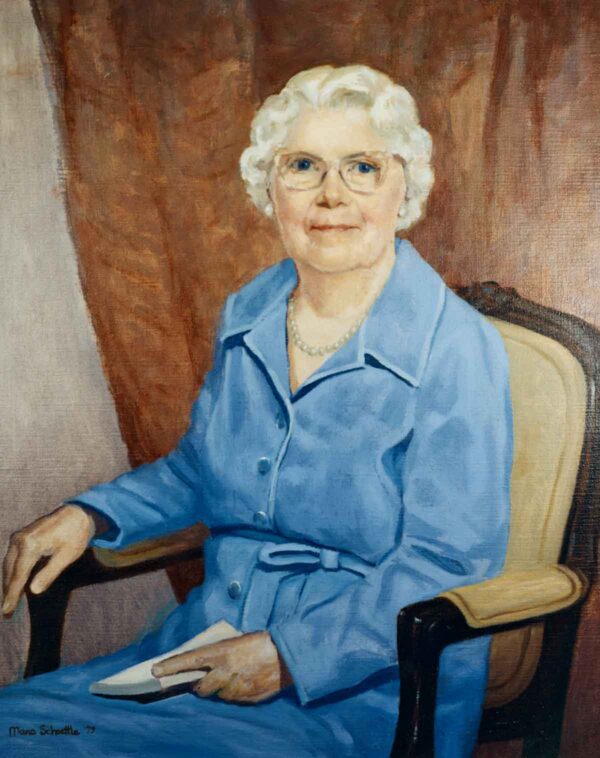
The Wilsons, descended from Scottish weavers, immigrated to the United Sates from what is now known as Northern Ireland in the late 1800s. Charlotte Rachel Wilson was born on March 28, 1890 in Philadelphia and was the youngest of three children. Her vision was impaired from childhood, and she could not read for long enough periods to make serious study possible.
Her father, Dr. Matthew J. Wilson, a physician and a public-spirited citizen, served several terms on Philadelphia’s Board of Education. Dr. Wilson was a pharmacist before he became a physician; he maintained an interest in pharmaceuticals and, beginning in the 1890s, made wise investments in Smith Kline, a Philadelphia drug company.
Although her older sister and younger brother were college graduates, Charlotte Wilson never attended college because of her vision disability, but she shared her father’s public-spirited activism. During World War I, she sold war bonds in her community and was active in the Red Cross, teaching women to knit socks, scarves and warm hats for soldiers.
Mrs. Newcombe was proud of her heritage and loyal to the Presbyterian Church. As a member of Presbyterian congregations in Philadelphia, she was a strong supporter of ministry and mission. She derived great pleasure from regular church attendance and from the beauty of church music.
She accompanied her parents on a leisurely trip around the world in 1925-27, spending several months each in Japan, India, Egypt, France and England. On the ship that took them from India through the Red Sea to Egypt, she met Fred C. Newcombe, the ship’s officer who became her husband almost three decades later, in 1952.
Charlotte Wilson lived with her parents and cared for them in their declining years. Before his death in 1931, Dr. Wilson secured a firm promise from his daughter that she would never sell any of the Smith Kline stock she would inherit. Her adherence to that promise over the next 48 years was rewarded by the remarkable growth of the drug company and of her fortune late in her life. At her death, her estate was valued at more than $34 million. Mrs. Newcombe was proud of her heritage and loyal to the Presbyterian Church. As a member of Presbyterian congregations in Philadelphia, she was a strong supporter of ministry and mission. She derived great pleasure from regular church attendance, from the beauty of church music, and from generously supporting the church.